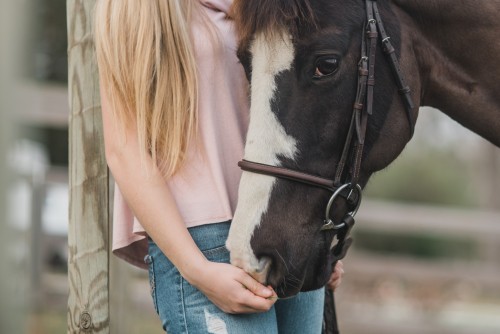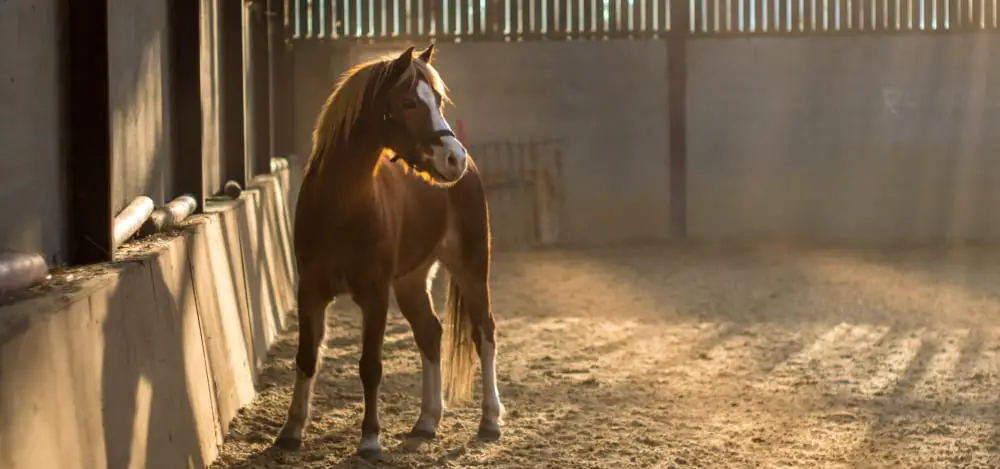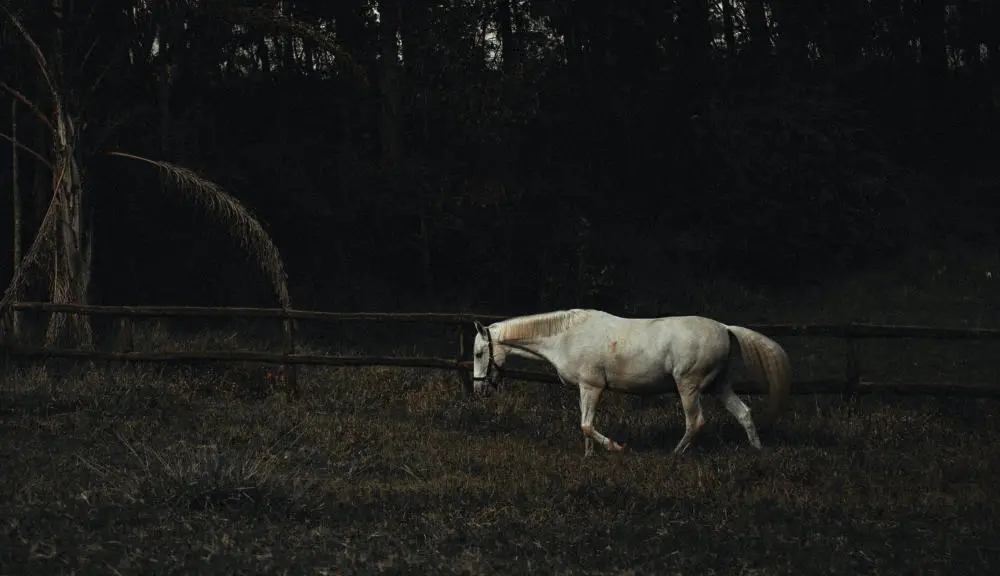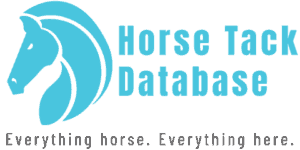I often find myself out in the pasture spending time with my horses. Sometimes, one particular horse, reno, will walk up and lick me. But why?
A horse who shows a licking behavior is showing signs of affection, boredom, a nervous response to danger, or lack of mental stimulation even potential health problems such as pica or a lack of the proper nutrients.
In this article, you will learn why a horse licks their owner or handler. You will also get to know why a horse is licking more than normal and the potential risk associated with licking other surfaces.
Reasons Why a Horse Licks their Owners or Handlers
A horse licking their owner isn’t necessarily a bad thing. There are a variety of reasons your horse may be licking the snot out of you. However, if you have serious concerns I recommend speaking with your veterinarian
A Sign of Affection

Horses have unique personalities, just like humans. They will lick their owner or caretaker to show affection. However, the behavior can become a bad habit to some horse breeds.
You need to pay attention to every bit of licking behavior. It will help to rule out some assumptions rather than affection.
Understanding your horse’s affection behavior will help to know the reason behind the growing habit of licking.
Lack of Mental Stimulation
A horse that lacks adequate exercise or mental stimulation may develop the habit of licking any surface, including its owner.
The issue is due to boredom. Changing the daily routine of your horse will help to resolve the behavior in the long run.
Providing your horse with frequent exercise and new training techniques happen to be the best solution regardless of the horse breed.
Dietary Issues
Dietary deficiencies are yet another possible cause of horse licking habit. They are licking the skin of the caretaker or rider to help the horse obtain salt and minerals that are not being provided in their daily meals.
We recommend providing your horse with a healthy and well-balanced diet to prevent him from licking more than normal.
Also, a manifestation of diet deficiencies could be displayed by the horse starting to lick the dirt and any other surfaces. The aim is to correct dietary deficiencies.
Looking for Treats
A horse can develop some unique behavior based on how often the caretaker treats him. Giving your horse treats frequently tend to create the urge more often.
Therefore, your horse will develop the habit of licking your hands in the name of searching their favorite treats.
It would be best if you recognized the difference between affection and other disguise behaviors. Take the time to understand your horse lick behavior before making any assumption.
A nervous response to danger
If your horse isn’t necessarily licking you but just licking or chewing the air or nothing in general, this could be a sign of a nervous response to a danger passing.
Think about when you narrowly avoid an automobile accident, or you avoid being bucked. That feeling of your adrenaline pumping through your veins and that big sigh you probably let out. That’s what your horse is doing. Dr. Sue McDonnell explains this in great detail over at thehorse.com
Habit
A horse can lick your hand with no explanation. It could be due to their initial reason, which has grown into a serious habit.
Correcting a chronic licking habit in a horse is a daunting experience. Stopping the behavior will take a lot of time and patience.

Why Is My Horse Licking More Than Usual?
Horses are unique creatures since their personalities tend to change with age. Horse licking the owner, walls, and other surfaces are normal.
But incessant licking could be a sign of more serious issues that need to be addressed. Here are the possible reasons why a horse might lick more than normal:
Health Problems
The horse tends to lick excessively as a sign of gastric ulcers. Licking helps the horse to produce more saliva, which is antacid. It helps to relieve the pain.
Also, a horse licking more than normal could be due to separation anxiety or other behavioral issues. Resolving the cause of this issue will combat the licking behavior.
Besides that, we recommend consulting a local vet in case the licking behavior becomes persistent and consistent. The vet will examine the issue and diagnose it.
Mineral Deficiency
Horses that lack vital minerals in their diet will foster the excessive licking habit. Your horse will start licking walls, floors, riders, and other surfaces to correct their diet deficiencies.
We recommend getting mineral supplements for your horse. Besides that, provide a well-balanced diet to correct the issue.
Encouragement of the Behavior
Many horse parents believe that licking is a sign of affection, and they end up rewarding the horse for displaying love.
Therefore, the horse will end up picking the habit and start licking more than normal with the intention of getting rewarded.
Why Does My Horse Lick and Chew?
All horse breeds have a habit of licking and chewing. Therefore, it is quite normal to see your horse lick and chew. However, some licking and chewing could be beyond their natural habitat.
Here are possible causes for horse licking and chewing more than normal. These causes include:
A Sign of Submission
Your horse may show a sign of learning or submission during training. The behavior is commonly displayed by constant licking and chewing.
This is usually the best time to train your horse new techniques and even perform adequate exercise to get rid of boredom.
Stressful Situation
Non-nutritive chewing could be a sign of aggression due to the current stressful situation. Your horse might approach another horse in a threatening manner, and this tends to be quite dangerous.
Research shows that the chewing could be due to switching from dry mouth caused by stress to salivation associated with relaxation.
Co-regulation
Horses tend to show affection to their owner or rider. The nervous system of the rider and the horse tend to resonate with each other. The horse will shift into a relaxation response by licking and chewing to co-regulate or sync its system.
Deficiency of Minerals
Horses tend to lick the dirt and chew due to mineral deficiencies. Horses suffering from serious diet deficiencies tend to lick and chew the dirt to top up good microbes into their gut.
These microbes are quite beneficial to the horse since they help resolve stomach upsets due to poor digestion. However, the ingestion of sand by the horse during the process can be harmful.

How to Stop My Horse from Licking and Chewing Dirt
Horses have a natural habit of licking and chewing dirt from different surfaces. The good news is that this is not a cause of concern.
However, it is a good indicator that your horse lacks minerals in their daily meal. So, licking dirt and chewing will help to nourish your horse.
Here are some of the possible tricks on how to distract your horse from licking and eating dirt more than usual. These tips include:
Adequate Exercise
Horses are prone to getting bored. The issue is manifested by licking dirt and even head bobbing. Subjecting your horse to enough exercise will help to prevent him from getting frustrated.
You can hire a professional horse trainer in case you have limited time at your disposal. It is one of the best options proven and tested to be efficient in eliminating boredom in horses.
Good Grazing
Sometimes licking and chewing dirt could be a sign of hunger. Getting your horse in the field full of grass will help resolve the issue. Your horse will focus on grazing rather than licking any surfaces.
Besides that, it is yet another method to keep the mouth of your horse busy. Munching hay or grass is one of the best options for distracting the behavior.
Getting Companionship
All herd animals tend to need companionship, and the horse is not an exception. It does not imply buying another gender horse but using the readily available resources to give your horse a companion.
You can graze your horse with other animals in the field. It is one way to combat separation anxiety and boredom that leads to licking the dirt from surfaces.
Provide Salt and Mineral Supplements
We all now agree that horses tend to lick dirt due to nutritional deficiencies in their daily meals. Licking the dirt helps them to obtain minerals that are beneficial to their body.
Getting supplements with added sodium and other minerals will help to distract the licking behavior of your horse. Licking the supplements will boost their diet and also keep the horse busy.
Consider Buying Toys
Horses tend to enjoy playing with toys and also foraging food. The good news is that there are plenty of horse toys in the market.
Get a toy that is safe, sturdy, and produces a lot of noise. The mobility of the toy and noise is enough to distract the horse from licking dirt.
Consult a Professional Veterinarian
Sometimes, horse licking and chewing dirt could be due to a health problem. Consulting your vet will discover the underlying health problems.
Besides that, excessive consumption of sand by your steed could pose a serious problem. The vet will examine the issue and diagnose to resolve any life-threatening issues.
What Are the Potential Risks of Horse Licking Other Surfaces?
If your horse has the habit of licking you, then there is no problem. But if the steed has the habit of licking any surface, it is prone to experience some risks.
The habit tends to develop due to diet deficiencies. It is advisable to identify the underlying issues and provide mineral supplements to resolve it.
Horses that tend to lick dirt are likely to suffer from sand colic. The problem will make your horse experience frequent stomach upset.
If the diet is not the possible cause of the habit, you need to examine your horse’s environment, activity, and mental stimulation.
Research shows that a horse licking the owner could either be a sign of affection or looking for their favorite treats.
Besides that, lack of mental stimulation is another possible cause of licking and chewing more than usual. Subjecting your steed to enough exercise will resolve the behavior.
We recommend training and growing the personalities of your horse to help combat the licking behavior. Lastly, limit the number of rewards anytime the horse show affection.
Related Questions
Q. How Do Horses Show Affection?
A: A horse leaning on the owner or rider is a clear indicator of affection. Also, the horse will display affection by licking the hand of their handler.
Sometimes the horse might follow you around by respecting all your orders. These signs are enough to show a strong bond between the owner and the horse.
Q. Do Horses Lick Themselves?
A: Yes. Horses tend to groom themselves. Licking their skin help to shed old hair and allow the growth of new ones.
However, aggressive licking can leave your horse with skin patches all over the body. We recommend grooming your horse to avoid such instances from occurring.
Q. Why Do Horses Chew?
A:Horse chewing is a way of easing frustrations and boredom. However, some medical issues can compel your horse to chew wood and other things from the surrounding.
Q. What Does It Mean When Horses Lick Their Lips?
A: A horse licking the lips is a sign that your steed is calm and relaxed. However, this is not an indicator that your horse loves you. Keep in mind that a horse with a tight mouth is a sign of anxiety and fear.
Q. Do Horses Like Kisses?
A: Absolutely. The horse is fond of licking and kissing. However, the situation can make their owners uncomfortable. Besides that, horses tend to love body contact with their rider or caretaker.
Summary
Horses tend to lick their owners to display affection and also get salt from the skin. The behavior could be due to the low level of sodium and other minerals in their body.
It is advisable to get mineral supplements to boost sodium in the body of your horse. This is under a situation where your horse tends licking more than usual.
We also recommend consulting your veterinarian to help examine and diagnose the behavior from your steed. Sometimes the habit could be due to medical health problems.
The good news is that your horse’s licking behavior can easily be distracted by the use of horse toys, grazing fields, and getting a companion for your horse.
